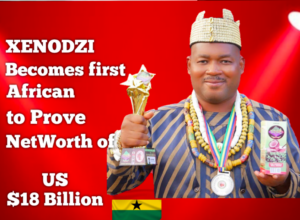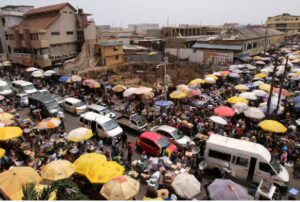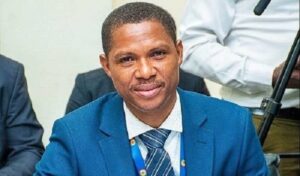
On Tuesday, July 5, 2022, a high-level delegation from the International Monetary Fund (IMF) arrived in Ghana to start discussions with the government on how the fund will support the country out of its current economic challenges.
Carlo Sdralevich, Mission Chief, is the head of the team which comprises senior officials of the fund from its head office in Washington, DC, United States of America (USA).
Sdralevich’s official designation is, “Division Chief at International Monetary Fund.”
He is currently the IMF’s Division Chief, Western III Division, and Ghana Mission Chief African Department.
His past activities as stated on his Résumé or Curriculum vitæ published by l’Osservatorio sulle Economie Emergenti – Torino (OEET) include;
*IMF, African Department (AFR)
*IMF, Middle-East and Central Asia Department (MCD)
*IMF, Policy Development and Review Department (PDR)
*IMF, Executive Board – Advisor to Italian Executive Director
*Fiat Group – Senior Economist
*European Bank for Reconstruction and Development – Consultant/Intern in the Chief Economist Office
*Università Bocconi – Teaching Assistant
Expertise
*IMF macroeconomic adjustment programs
*Natural resource-rich economies and energy subsidy reform
*Low-income and fragile state countries
*Macroeconomic vulnerabilities and risk management
Human resources
Selected publications
Fair Taxation in the Middle East and North Africa, with Mario Mansour, Pritha Mitra, and Andrew Jewell, IMF Staff Discussion Note, 2015.
Subsidy Reform in the Middle East and North Africa – Recent Progress and Challenges Ahead, with Randa Sab, Younes Zouhar, and Giorgia Albertin, MCD Departmental Paper, 2014.
Energy Subsidy Reform – Lessons and Implications, edited by B. Clements, D. Coady, S. Fabrizio, S. Gupta, T. Alleyne, and C. Sdralevich, International Monetary Fund, 2013.
“Serbia and Montenegro: Export Performance and External Competitiveness”, Selected Issues Paper for the 2004 Article IV Consultation for Serbia-Montenegro.
“The Foreign Currency Parallel Market in Burundi”, Selected Issues Paper for the 2003 Article IV Consultation for Burundi.
“The new approach to sovereign debt restructuring: setting the incentives right”, with Biagio Bossone, IMF Policy Discussion Paper 02/4, International Monetary Fund.
“Banks and governance in transition economies”, in “Property, control and corporate governance of banks”, Banca Nazionale del Lavoro Quarterly Review Special Issue, March 1997.
“Commercial infrastructure: pressures and potential”, Chapter 4 of 1996 Transition Report, European Bank for Reconstruction and Development (with Steven Fries).
Why Ghana is going under IMF programme
A press release from the Public Relations Unit of the Ministry of Finance confirmed the arrival of the IMF team today for initial engagements with the government.
“Subsequent to the directive by the President, the Ministry of Finance hereby announces the commencement of engagement with the IMF to support Ghana’s economic programme.
“Pursuant to this, a delegation from the fund is scheduled to arrive in Accra on Tuesday to commence in-person meetings with the government of Ghana on Wednesday,” it said.
The release gave assurance of the government’s commitment to successfully negotiate a programme with the IMF in the coming months, in support of Ghana’s economic recovery.
The IMF Country Office confirmed receipt of the indication and pledged to support the country in its 18th programme with the fund.
In April 2015, Ghana turned to the IMF for a $918-million loan to support its ailing currency and help stabilise the economy.
IMF advisors, working with the government, developed a three-part programme to restore debt sustainability, strengthen monetary policy and clean up the banking system.
Ghana exited the IMF programme in December 2018.
The fund’s support
The IMF works to achieve sustainable growth and prosperity for all of its 190-member countries.
It does so by supporting economic policies that promote financial stability and monetary cooperation, which are essential to increase productivity, job creation and economic well-being.
Source: www.ghanaweb.com










